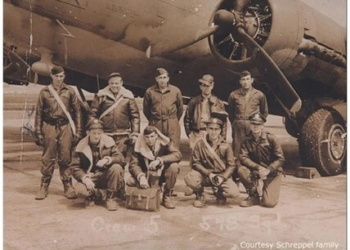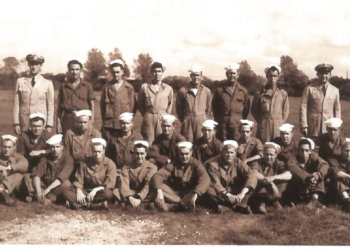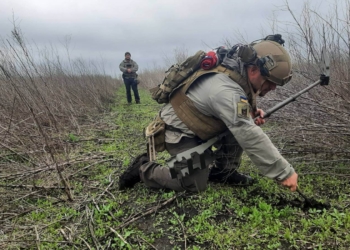The struggle of reintegrating from a combat veteran back to my normal life at home was supremely challenging after my deployment to Afghanistan. What seems normal to a civilian — alarm clocks and buzzers — means danger to many war veterans, which makes my life as a wife and mother, even years later, sometimes laborious.
I had a countdown clock sitting on my desktop telling me the days, hours, minutes and seconds until I was able to go home. The day soon came, and it was finally time to return. As I landed back in the United States, I found myself becoming overwhelmed by the sights and sounds that once inferred danger, but now indicated a normal part of life.
Days before, a blaring alarm meant incoming rockets. Now, that same sound let me know that my baggage arrived. I tensed up and started to react, but I had to remind myself that I was safe. I was home.
After completing the official reintegration requirements by the military, I was given time off for rest and recuperation. This time is meant to help soldiers adjust to “normal life.” But it’s never enough. Reintegration takes time; lots of time.
Many war veterans might even begin to think that life should be okay now that we’re home. We think things we left behind will go back to the way they were, but that’s a lie. We have changed, and our families have changed. Life kept moving on even when it felt as if everything was on hold for our deployment. Everyone else kept living their life.

Relearning to live with people
Before departure and upon return, soldiers are briefed that one of the first steps of reintegration is adjusting to living with our families again. There are things we will have forgotten. Like communicating with our spouse in person, or putting someone else’s needs above our own. While we are so happy to be home, the pressure of being home produces an instinct to run. Run back to the place we wanted to leave.
This can cause us to feel things, but admitting them and saying them out loud feels too hard. Open communication is key to adjusting back to life. Being open and honest about how we feel, and listening to how our family members feel, is essential.
For moms returning home, it’s a whole different ball field. While moms are so happy to be home from their deployment, they also struggle to adjust back to motherhood.
Life kept moving
For moms coming home they find their kids are not the same people they left behind. They continued growing and changing without them. And the way they parented before leaving does not always work months later.
While deployed, the world keeps going. And when I arrived back home, small things like streets being closed or a bathroom being remodeled, seemed strange. Things were not the way I left them. Neighbors moved, new people arrived. It felt foreign to come back to a place that was my home but no longer felt like it.

Awareness of triggers
One thing that I didn’t realize before coming home was how the sights and sounds of a deployment are present in everyday life in America. While these sights and sounds when I am home often don’t mean danger like they did overseas, they still bring me to a place of fear and anxiety.
For example, days after arriving home, I decided to walk across an open field to visit a friend. During that walk I began searching for mines. Even though I knew I was safe in the U.S., my body took control.
This still happens even though I have been home for years. Every time I see a pile of rocks, I think, “IED, Afghanistan.” Most days I can easily move right past it, but the memory is always there.
Finding a safe person to listen
What is most unique for women is how we process things: through words. It is important to have either a close friend, family member or a counselor to talk to about our deployment.
I wish I would have taken more time to talk about the hard parts of my deployment instead of burying them deep in my mind. Without talking about it, I wasn’t able to move forward and it has stuck with me for a long time.
Read comments






































